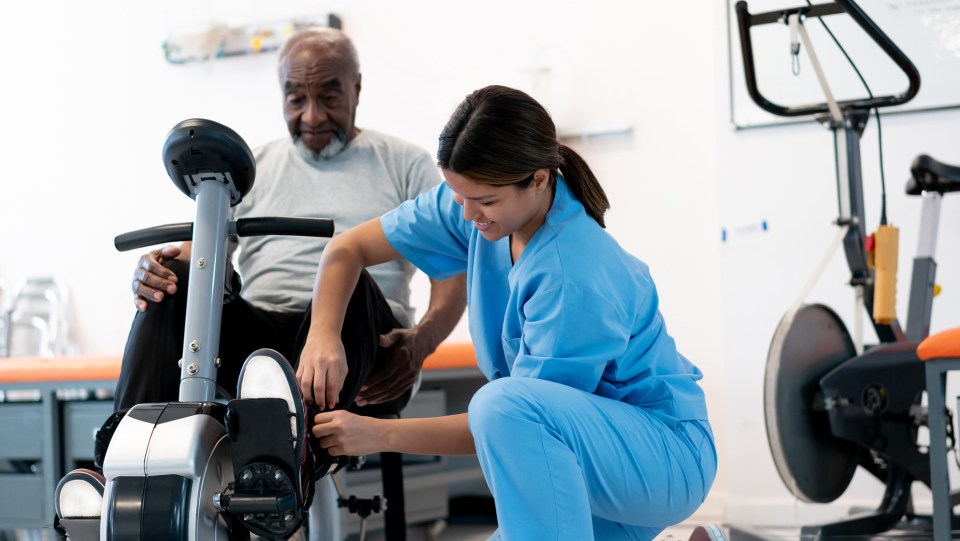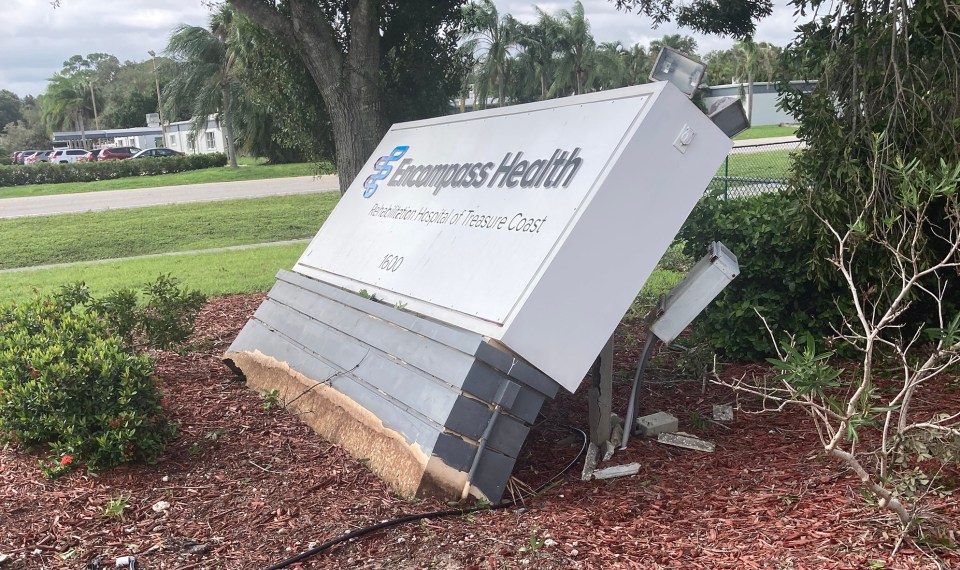The rehabilitation landscape is constantly evolving, and ongoing research continues to improve outcomes for patients recovering from stroke, traumatic brain injury, spinal cord injury and more.
Encompass Health’s therapy grant program, which was established in 2016, has supported nearly 30 research studies aimed at the effectiveness or impact of therapy in an inpatient rehabilitation facility (IRF) post-acute care setting. Each year, physicians, employees and other qualified candidates in the medical community are invited to apply to receive funding.
Learn about this year’s winning proposals and the exciting research Encompass Health is supporting across the country.
Explore Career Opportunities
Want to work for a company that puts evidence-based research into everyday practice? We are hiring, and with more than 160 locations nationwide, we may have an opportunity for you.
View Job ListingsMusic-Induced Rhythmic Entertainment Intervention for the Upper Limb in Sub-Acute Stroke Patients
Submitted by: Rehabilitation Hospital of Kingsport, a joint venture of Ballad Health and Encompass Health
Principal investigator: Tracy Skinner
The focus of this research will be to examine stroke patients who participate in a new gravity-compensated program that involves rhythmic auditory-motor training using music for neural entrainment. This program will be provided in addition to traditional therapy, and it will be compared to patients in a control group consisting of patients who only receive traditional therapy. The goal is to determine if this training program has efficacy within an IRF setting.
Pilot Study to Investigate the Implementation of a New Cardio Restoration of Function Program within an IRF
Submitted by: Rehabilitation Hospital of Kingsport, a joint venture of Ballad Health and Encompass Health
Principal investigator: Tracy Skinner
Within an IRF setting, skilled therapy is provided by rehabilitation specialists who incorporate advanced technologies and approaches into patient care. For this study, researchers will conduct an analysis of how the introduction of a new skilled program within an IRF that involves routine data monitoring of aerobic exercise impacts therapy workflows. This program will also supply patients with additional insight into their cardiac health by providing real-time biofeedback and self-analysis of their progress. Considering physiological benefits of aerobic exercise is seen at approximately eight weeks, patients will receive additional information on how they can continue to work toward a heart healthy lifestyle per the American Heart Association guidance.
Your Mind Can Exercise Too: A Novel Application of Motor Imagery Practice in Swallowing Rehabilitation
Submitted by: Samford University
Principal investigator: Sarah Szynkiewicz
This is a multi-site (Case Western Reserve University, Emerson College, James Madison University, Samford University and Texas Christian University) prospective multiple baseline single case study to determine feasibility and explore the preliminary effects of motor imagery practice (MIP) on swallowing function in patients with Parkinson’s disease. MIP involves the mental rehearsal of a motor movement, in this case an exercise task, without overt muscle movement. MIP has been shown to improve motor outcomes in limb rehabilitation, but it is a novel concept in swallowing rehabilitation.
Foundational mechanistic research has shown that motor imagery of swallowing activates many of the same brain regions as a physical swallow, and preliminary data suggests improved tongue strength and swallowing pressure when MIP is used in combination with physical tongue exercise.
This research aims to fill gaps in evidence specific to swallowing disorders in patients with Parkinson’s disease and to evaluate a novel rehabilitation method. The anticipated results of this study will inform clinical practice in inpatient, outpatient and home health settings, improve swallowing function and quality of life in patients with Parkinson’s disease, and lay the groundwork for the design of future randomized controlled clinical trials.
The content of this site is for informational purposes only and should not be taken as professional medical advice. Always seek the advice of your physician or other qualified healthcare provider with any questions you may have regarding any medical conditions or treatments.



